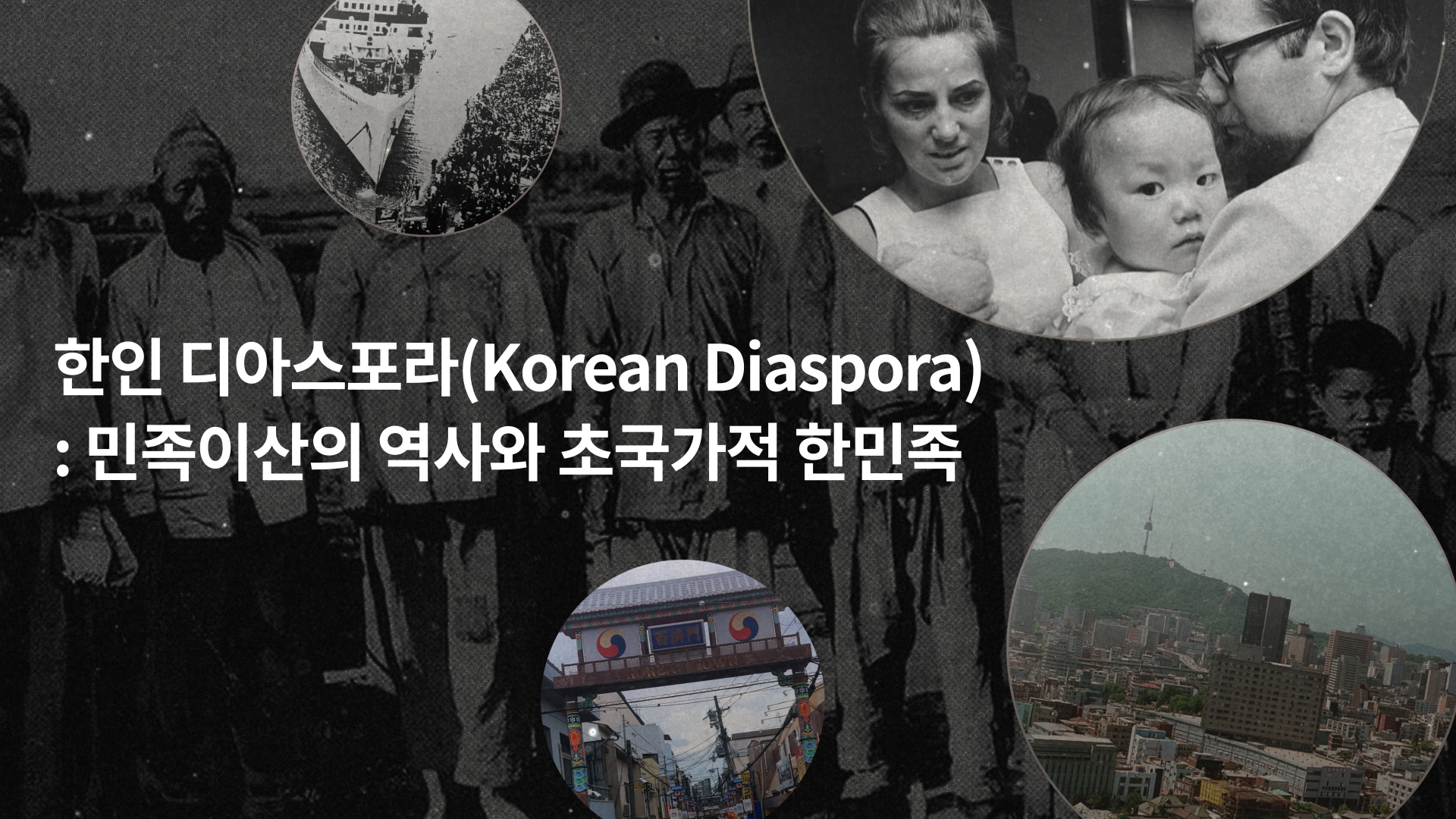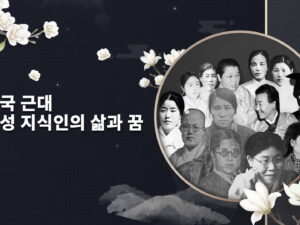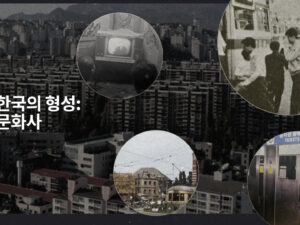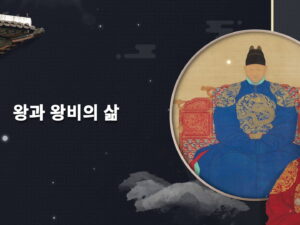Korean Diaspora, Its history, and Transnational Koreans
- Description
- Curriculum
- Notice

Course Introduction
This course examines the historical process of ethnic diaspora that began from the late Joseon Dynasty and has continued through the Cold War and the era of globalization, relating it to the characteristics of each era. The course reconstructs the Korean diaspora in three dimensional perspectives by shedding light on the activities of various actors of diaspora, such as refugees, independence activists, and adoptees, in the United States, South America, and the area of the former Soviet Union.
Learning Objectives
∙ Examine the history of various diaspora groups and their processes of migration in the context of the Korean Peninsula.
∙ Understand the impact of the liberation and division of the Korean Peninsula, and the Cold War era on the Korean diaspora, as well as the formation and development of the nation.
∙ Examine the impact of transnational migration in the global era on the identity of the Korean diaspora, and consider their identity as global citizens.
Course Structure
This course consists of a total of 8 weeks. The lectures in each week are organized into three to six videos by topic.
Subtitles
Korean, English, Chinese
-
93-1. Japanese Colonial Period and the Formation of Migration Society in Gando
-
103-2. History of Gando Development and Independence Movement
-
113-3. Another War Koreans Living in China Faced after Liberation
-
123-4. Dissolution of the East-West Cold War and the Era of Emigration to South Korea by Korean Compatriots in China
-
133-5. Transnational Korean Chinese Network in the Era of Global Migration
-
226-1. Overseas Migration and the Enactment of the South Korean Emigration Act in the 1960s and 1970s
-
236-2. Korean Immigration to Brazil in the 1960s and 1970s
-
246-3. Miners and Nurses Who Went to Germany in the 1960s and 1970s, and the Growth of Korean Communities
-
256-4. Re-Migration, Return to Korea, and the Formation of Korean Network
-
267-1. Involuntary or Forced Migration
-
277-2. The Korean War and the History of the Overseas Adoption of War Orphans
-
287-3. North Korea’s Food and Economic Crisis in the 1990s and the Mass Defection
-
297-4. Experience of the North Korean Defectors Entering South Korea and Their Escape from South Korea
-
307-5. Searching for Families and Another Broken Families
Chung, Byungho
Byungho Chung is Professor Emeritus of Cultural Anthropology at Hanyang University.
Lee, Joowhee
Joowhee Lee is a researcher at the Institute of Globalization and Multicultural Studies, Hanyang University.
Lim, Sungsook
Sungsook Lim is HK Research Professor at the Institute of Japanese Studies, Hallym University.










